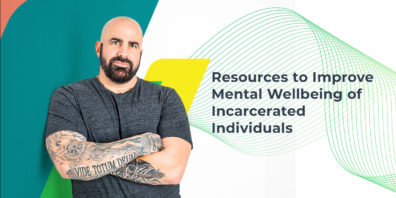How People Volunteering in Prisons Helps Inmate Rehabilitation
octobre 11, 2016
Volunteering in prisons is a selfless way for citizens to help rehabilitate inmates seeking a better life during and after incarceration.
Citizens can gain the opportunity to fulfill an important public service role, by volunteering in a correctional facility. Additionally, this activity is highly rewarding, because it makes a measurable difference in the lives of people who actively want to better themselves.
Most volunteer positions within prisons are related to educational programming. Volunteers often bring a wide variety of skills that help inmates learn what it means to be an engaged, productive member of society.
When law-abiding citizens share their time and expertise, it does more than help inmates learn the specific program material, it provides a regular example for inmates to emulate.
How to Start Volunteering in Prisons
The process for becoming a volunteer often begins with locating and contacting the correctional facility. Many facilities offer insight for becoming a volunteer on their website.
Because every facility is different, you want to begin your inquiry by finding out if your chosen facility is currently accepting volunteers. Some openly seek volunteers and make it very easy to apply. For example, the Florida Department of Corrections offers their volunteer application form for download online.
A number of volunteer organizations exist throughout the country. Depending on your location and the kind of volunteering you are interested in providing, you can consider contacting one of the following organizations:
- The Prison Education Project Organization (known as PEP) operates out of California. According to their website, PEP has serviced approximately 4,000 inmates in their facilities with the help of 700 university student and faculty volunteers facilities since 2011. PEP is the largest volunteer-based prison education program of its kind in the United States.
- Freedom Project strengthens their community (Seattle, WA) through supporting the transformation of prisoners into peacemakers. We offer trainings in concrete skills of nonviolence leading to reconciliation with ourselves, our loved ones, and the community. Our work addresses the healing of relationships ruptured by violence and the forging of community founded on genuine safety through connection.
- The People’s Education Initiative was founded in 2004 by friends and colleagues with shared concern for the declining educational resources in prisons and jails. The group identified a lack of opportunities for incarcerated women to work in academic settings in New York City’s jails. PEI facilitates continuous 8-week units of evening classes through the Rose M Singer Center on Rikers Island.
- In Atlanta, the faith-based group Out of Darkness works with volunteers who visit women in Atlanta City Detention Center, DeKalb County Jail, Gwinnett County Jail, Cobb County Jail, Cherokee County Jail, and Bibb County Jail in teams of two. Volunteers have an awesome opportunity to cultivate a relationship by visiting and writing letters, and ultimately be a source of hope and encouragement. Volunteers can also serve on the RESCUE TEAM and be at the jail when the inmate is released to transport her to safety.
- Pennsylvania passed a law allowing volunteers into prisons for the purpose of ensuring inmates are cared for humanely. The mission of the Pennsylvania Prison Society is to advocate for a humane, just and restorative correctional system, and to promote a rational approach to criminal justice issues. Official Visitors are advocates for the just and humane treatment of prisoners. Members of the Prison Society, they monitor prison conditions and visit prisoners to assist them with issues ranging from serious medical concerns to re-connecting with family members.
To locate a program that fits your location and interest, you can use websites like:
Volunteering in prisons is so rewarding, that this woman wrote an inspiring article about her six-month experience volunteering in Oregon. She points out important facts like:
- Inmates are grateful for volunteers and treat them with the highest respect.
- Inmates are often not unhappy and miserable like the movies might suggest. They enjoy learning and bettering themselves just like you.
- Oftentimes inmates feel forgotten. Volunteers may play a bigger role in their lives than their family and friends.
Remember that every volunteer opportunity will be different, and your experience will be fulfilling and unique to you.
Volunteering in prison can be a divisive topic because of the possible perceived danger. In fact, as the article above points out, inmates appreciate volunteers and hold them to the highest regard. Volunteering is safe and the benefits are immeasurable.
Choosing to spend your time volunteering in a prison is something to be very proud of, and we are interested in hearing your stories!
Share why you would like to, or already volunteer in prison on our Facebook Page.
Posted In: Blog



